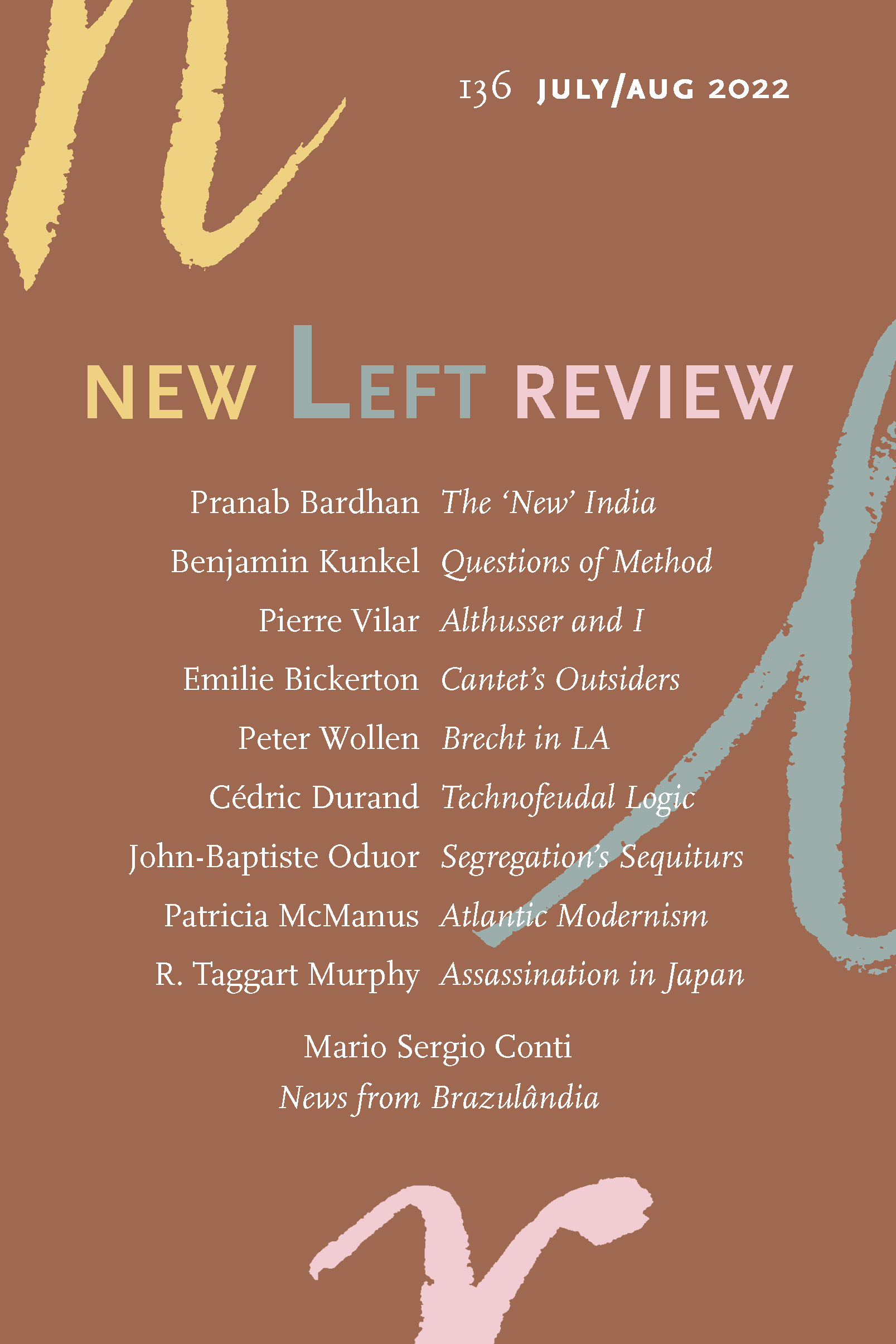Powerful critique of the skewed political economy of Modi’s India, where a puny state—corollary of a vast informal economy—is penetrated through and through by politically connected vested interests, while major obstacles to the country’s development—creaking infrastructure, poor healthcare and education—go unattended.
Replying to Evgeny Morozov’s ‘Critique of Techno-Feudal Reason’, Cédric Durand stresses digital capitalism’s regressive social character, its logic of access over consumption and the impasse of production at a world-system level.
A vivid account of Roberto Schwarz’s new play, Rainha Lira, staging the political turmoil of contemporary Brazil. Intricacies of class conflict and Caesarist reaction, bourgeois rejoicing and favela discontents, in a polyphonic epic that foretells the troubled conditions of Lula’s return.
How will the assassinated Abe Shinzo be remembered? Portrait of a ruling-class politician who re-enforced the crumbling citadel of Japan’s post-war order—and the murky connections with the far-right 'new religion' that led to his death.
From the author of Signs and Meaning in the Cinema, a rediscovered appraisal of Bertolt Brecht’s war-time exile in California. Tracing the swirl of interconnections between salonnières and stars, exiles and dissidents, artists of stage and screen. Beyond Hollywood frustrations, what of a Brechtian cinema?
Blueprint for a ‘total historicism’ in literary studies, reconciling political commitment with aesthetic judgement amid the slow death of humanities departments. Benjamin Kunkel continues the discussion of critical strategy focused around Joseph North’s Literary Criticism.
Study of the ‘social cinema’ of Laurent Cantet, from Tous à la manif and Ressources humaines to his latest film, Arthur Rambo. Emilie Bickerton explores the interests and methodologies that make the French director’s work so distinctive among his proletkino peers.
In a 1987 conversation with Peter Schöttler, the eminent historian of Spain reflects on the politics and historiography of the Civil War, the trajectory of the Annales School, the role of theory and his famous dialogue with Althusser.
John-Baptiste Oduor on Adolph L. Reed Jr, The South. Materialist account of the Jim Crow order, blending memoir and sociology to rebut essentializing depictions of Southern white supremacy.
Patricia McManus on Joe Cleary, Modernism, Empire, World Literature. Close readings of the Anglophone modernist canon, capturing a world literary system caught between European decline and American ascent.
